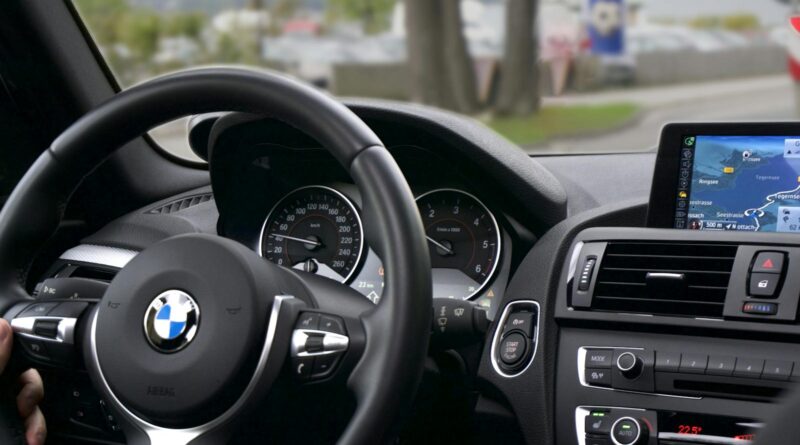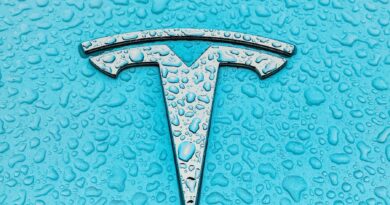The Future of BMW: Electric, Autonomous, and Beyond
-
Table of Contents
Introduction
The Future of BMW: Electric, Autonomous, and Beyond explores the transformative journey of one of the world’s leading automotive manufacturers as it pivots towards a sustainable and technologically advanced future. With a strong commitment to electric mobility, BMW is investing heavily in the development of electric vehicles (EVs) that combine performance, luxury, and environmental responsibility. Simultaneously, the company is at the forefront of autonomous driving technology, aiming to enhance safety and redefine the driving experience. This vision extends beyond mere transportation, as BMW seeks to integrate innovative digital solutions and connectivity into its vehicles, ensuring that they remain relevant in an ever-evolving automotive landscape. As the industry shifts towards greener and smarter solutions, BMW’s strategic initiatives position it as a key player in shaping the future of mobility.
Electric Mobility: BMW’s Vision for Sustainable Driving
As the automotive industry undergoes a profound transformation, BMW stands at the forefront of this evolution, championing electric mobility as a cornerstone of its vision for sustainable driving. The company recognizes that the future of transportation is not only about performance and luxury but also about environmental responsibility. With an ambitious commitment to electrification, BMW aims to redefine the driving experience while minimizing its ecological footprint. This commitment is evident in its strategic initiatives and innovative technologies that prioritize sustainability without compromising the brand’s hallmark of driving pleasure.
At the heart of BMW’s electric mobility strategy is the development of a comprehensive range of electric vehicles (EVs) that cater to diverse consumer needs. The introduction of the BMW i series marked a significant milestone, showcasing the brand’s dedication to pioneering electric technology. Models like the BMW i3 and i8 not only highlighted the potential of electric powertrains but also set a benchmark for design and performance in the EV segment. Building on this foundation, BMW has expanded its electric lineup, with plans to introduce numerous fully electric models in the coming years. This expansion is not merely a response to market demand; it is a proactive approach to shaping a sustainable future.
Moreover, BMW’s commitment to electric mobility extends beyond the vehicles themselves. The company is investing heavily in the development of charging infrastructure, recognizing that accessibility to charging stations is crucial for the widespread adoption of electric vehicles. By collaborating with various stakeholders, including governments and private enterprises, BMW aims to create a robust network of charging solutions that will alleviate range anxiety and enhance the overall ownership experience. This holistic approach underscores the brand’s understanding that electric mobility is not just about the cars but also about the ecosystem that supports them.
In addition to expanding its electric vehicle offerings and charging infrastructure, BMW is also focusing on sustainable production practices. The company is committed to reducing its carbon footprint throughout the entire lifecycle of its vehicles, from manufacturing to end-of-life recycling. By utilizing renewable energy sources in its production facilities and implementing circular economy principles, BMW is setting a standard for sustainability in the automotive sector. This commitment to responsible manufacturing not only aligns with global environmental goals but also resonates with consumers who increasingly prioritize sustainability in their purchasing decisions.
Furthermore, BMW’s vision for electric mobility is intricately linked to advancements in autonomous driving technology. The integration of electric powertrains with autonomous systems presents a unique opportunity to enhance the efficiency and safety of transportation. As the company develops its autonomous driving capabilities, it envisions a future where electric vehicles can communicate with each other and their surroundings, optimizing traffic flow and reducing energy consumption. This synergy between electric mobility and autonomous technology is not just a futuristic concept; it is a tangible goal that BMW is actively pursuing.
In conclusion, BMW’s vision for sustainable driving through electric mobility is a multifaceted approach that encompasses vehicle innovation, infrastructure development, sustainable production, and the integration of autonomous technologies. As the company continues to push the boundaries of what is possible in the realm of electric vehicles, it remains steadfast in its commitment to delivering a driving experience that is not only exhilarating but also environmentally responsible. By embracing this vision, BMW is not just preparing for the future; it is actively shaping it, ensuring that the joy of driving can coexist harmoniously with the imperative of sustainability.
Autonomous Driving: The Next Frontier in BMW Innovation
As the automotive industry undergoes a transformative shift, BMW stands at the forefront of innovation, particularly in the realm of autonomous driving. This next frontier not only represents a technological evolution but also embodies a fundamental change in how we perceive mobility. With advancements in artificial intelligence, machine learning, and sensor technology, BMW is poised to redefine the driving experience, making it safer, more efficient, and ultimately more enjoyable.
At the heart of BMW’s autonomous driving strategy is a commitment to safety and reliability. The company recognizes that for consumers to embrace self-driving technology, they must first trust it. To build this trust, BMW is investing heavily in research and development, focusing on creating robust algorithms that can process vast amounts of data in real-time. This data-driven approach allows vehicles to make informed decisions, whether navigating complex urban environments or responding to unexpected obstacles on the road. By leveraging advanced sensor systems, including LiDAR, radar, and cameras, BMW vehicles can achieve a comprehensive understanding of their surroundings, ensuring that they can operate safely in a variety of conditions.
Moreover, BMW’s vision for autonomous driving extends beyond mere functionality; it encompasses a holistic approach to user experience. The company is exploring how autonomous vehicles can enhance the lives of their occupants, transforming the car from a mode of transportation into a personal space for relaxation, work, or entertainment. Imagine a scenario where commuters can utilize their travel time for productivity or leisure, all while the vehicle navigates through traffic autonomously. This shift in perspective not only highlights the potential for increased convenience but also underscores the importance of integrating technology seamlessly into everyday life.
In addition to enhancing user experience, BMW is also focused on the environmental implications of autonomous driving. By optimizing traffic flow and reducing congestion, autonomous vehicles can contribute to lower emissions and improved air quality. Furthermore, as part of its broader sustainability strategy, BMW is committed to developing electric autonomous vehicles that align with its vision of a greener future. This dual focus on electrification and autonomy positions BMW as a leader in the transition towards sustainable mobility, addressing both consumer demands and environmental challenges.
As BMW continues to push the boundaries of what is possible, collaboration with technology partners and regulatory bodies becomes increasingly vital. The complexity of developing autonomous driving systems necessitates a multi-faceted approach, where expertise from various fields converges to create innovative solutions. By fostering partnerships with tech companies, research institutions, and government agencies, BMW is not only accelerating its own development timelines but also contributing to the establishment of industry standards that will govern the safe deployment of autonomous vehicles.
Looking ahead, the road to fully autonomous driving is paved with challenges, including regulatory hurdles, public perception, and technological limitations. However, BMW’s unwavering commitment to innovation and excellence positions it well to navigate these complexities. As the company continues to refine its autonomous driving capabilities, it remains dedicated to ensuring that safety, sustainability, and user experience are at the core of its mission. In this rapidly evolving landscape, BMW is not just preparing for the future; it is actively shaping it, paving the way for a new era of mobility that promises to be as exciting as it is transformative. Through its relentless pursuit of excellence, BMW is set to redefine the automotive experience, making autonomous driving not just a possibility, but a reality for generations to come.
Beyond the Road: BMW’s Integration of Smart Technology and Connectivity
As the automotive industry undergoes a profound transformation, BMW stands at the forefront of innovation, seamlessly integrating smart technology and connectivity into its vehicles. This evolution is not merely about enhancing driving experiences; it represents a fundamental shift in how consumers interact with their cars and the broader ecosystem of mobility. With the rise of electric vehicles and autonomous driving, BMW is committed to creating a future where connectivity is paramount, ensuring that every journey is not only efficient but also enriched by technology.
At the heart of this integration is BMW’s iDrive system, which has evolved significantly over the years. The latest iterations of iDrive offer intuitive interfaces that allow drivers to control various vehicle functions through voice commands, touchscreens, and even gesture controls. This level of interactivity enhances the driving experience, making it more engaging and user-friendly. Moreover, the system is designed to learn from the driver’s habits, adapting to preferences and providing personalized recommendations. This adaptability is crucial in a world where consumers increasingly expect their devices to understand and anticipate their needs.
In addition to enhancing user experience, BMW is also focusing on connectivity that extends beyond the vehicle itself. The company is investing in vehicle-to-everything (V2X) technology, which enables cars to communicate with each other, infrastructure, and even pedestrians. This connectivity not only improves safety by reducing the likelihood of accidents but also optimizes traffic flow, contributing to a more efficient urban environment. For instance, when vehicles can share real-time data about road conditions and traffic patterns, drivers can make informed decisions, potentially reducing congestion and travel times.
Furthermore, BMW is exploring the integration of smart home technology into its vehicles. Imagine a scenario where your car can communicate with your home, adjusting the thermostat or turning on lights as you approach. This level of integration exemplifies the future of mobility, where vehicles are not isolated entities but rather integral components of a larger network. Such advancements not only enhance convenience but also promote energy efficiency, aligning with BMW’s commitment to sustainability.
As the company moves forward, it is also prioritizing cybersecurity, recognizing that increased connectivity brings new challenges. BMW is implementing robust security measures to protect vehicles from potential cyber threats, ensuring that drivers can enjoy the benefits of smart technology without compromising safety. This proactive approach is essential in building consumer trust, as the reliance on digital systems continues to grow.
Moreover, BMW’s vision extends to the development of autonomous driving technology, which is inherently linked to connectivity. Autonomous vehicles rely on vast amounts of data to navigate safely and efficiently. By leveraging cloud computing and advanced algorithms, BMW aims to create a seamless driving experience where vehicles can operate independently while remaining connected to their surroundings. This not only enhances safety but also opens up new possibilities for mobility, such as ride-sharing and on-demand transportation services.
In conclusion, BMW’s integration of smart technology and connectivity is paving the way for a future where vehicles are more than just modes of transportation. They are becoming intelligent companions that enhance our lives, promote sustainability, and redefine mobility. As the company continues to innovate, it remains committed to creating a seamless, connected experience that not only meets the demands of today’s consumers but also anticipates the needs of tomorrow. The road ahead is not just about driving; it is about creating a holistic ecosystem that enriches every aspect of mobility.




